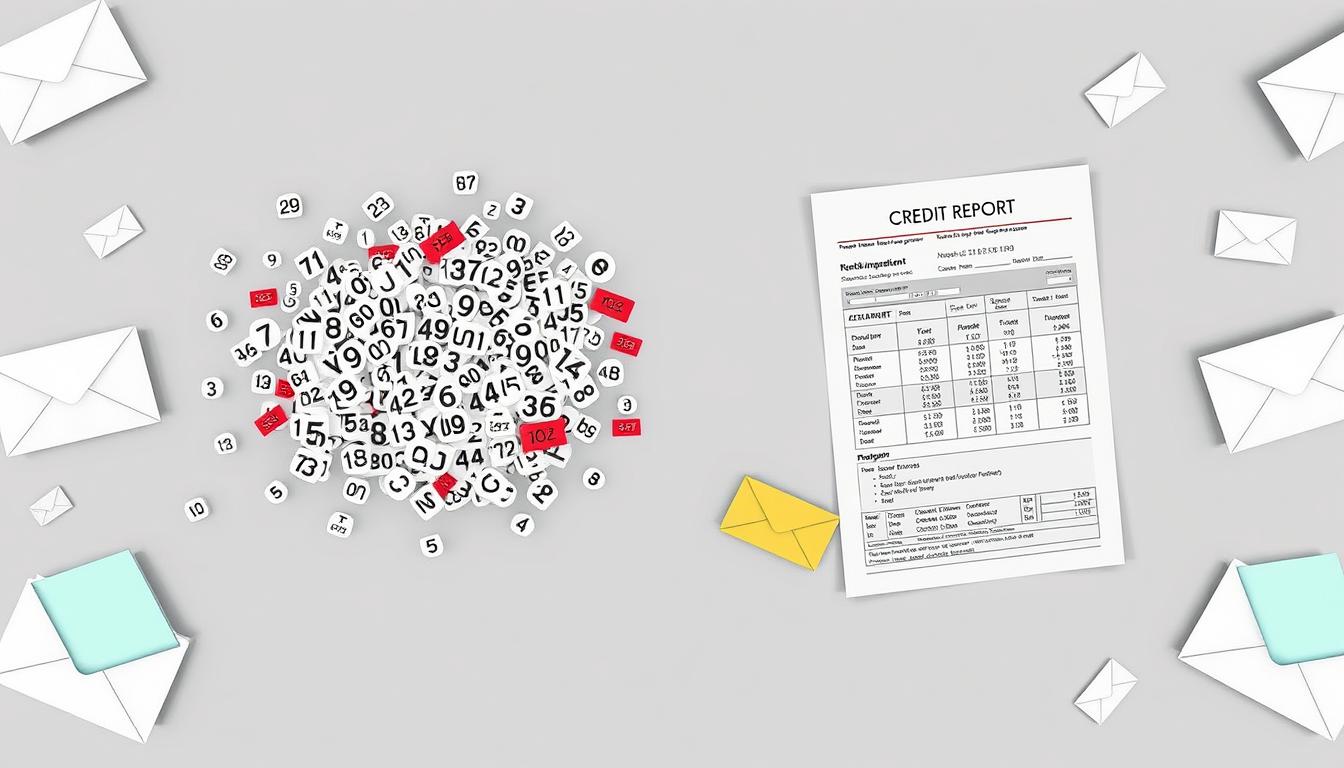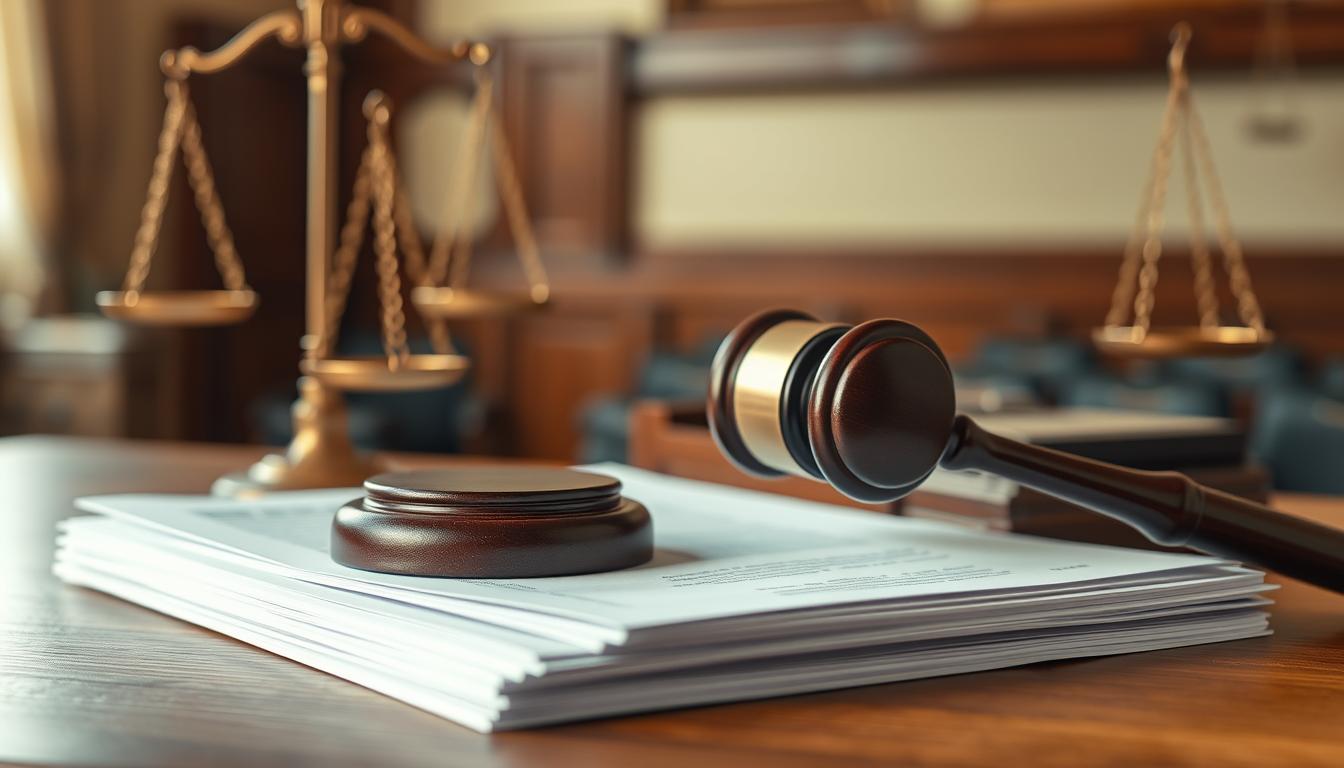Your credit reports’ accuracy is vital for your financial health. Factual disputes can affect your credit profile. This guide will help you address these issues effectively.
You’ll learn how to maintain a healthy credit profile. We’ll cover the credit reporting system and common errors. You’ll also discover how to challenge inaccuracies in your reports.
Key Takeaways
- Understand the importance of accurate credit information and its impact on your financial well-being
- Learn the ins and outs of the credit reporting system, including the role of credit bureaus and the content of credit reports
- Discover common credit report errors and how to identify and challenge them
- Explore the step-by-step process of initiating a factual dispute, including gathering supporting documentation and drafting effective dispute letters
- Understand your rights and protections under the Fair Credit Reporting Act (FCRA)
Understanding Factual Disputes
Accurate credit reports are vital for your financial health. Factual disputes happen when there are errors in your credit data. These credit report errors can harm your credit score and limit your opportunities.
They can make it harder to get loans, credit cards, or housing. They might even affect your employment prospects. It’s crucial to keep your credit information correct.
What is a Factual Dispute?
A factual dispute occurs when your credit report contains wrong or incomplete information. This could include mistakes in your personal details or payment history. Factual disputes require evidence to support your claim for correction.
You’ll need to provide proof to credit bureaus. This helps them fix the inaccurate information in your report.
The Importance of Accurate Information
- Wrong credit report information can lead to unfair credit decisions and higher interest rates.
- Errors can hurt your credit score, which determines your creditworthiness.
- Keeping your credit report accuracy ensures fair access to financial opportunities.
Understanding factual disputes helps protect your credit data. It allows you to take action when needed. This safeguards your financial well-being and future opportunities.
“Accurate credit reports are essential for securing fair and affordable financial opportunities. Taking the time to address credit report inaccuracies can have a significant impact on your financial future.”
The Credit Reporting System
The credit reporting system is vital for keeping credit reports accurate. It helps ensure your financial health. Credit bureaus are key players in collecting and sharing information about consumers’ credit histories.
Credit Bureaus and Credit Reports
Experian, Equifax, and TransUnion are the three major credit reporting agencies in the US. They gather data from lenders, creditors, and public records. This information is used to create credit reports for each consumer.
A credit report shows a person’s detailed credit history. It includes open and closed accounts, payment history, and credit inquiries. Lenders use these reports to assess creditworthiness and make decisions about extending credit.
The credit reporting system greatly impacts consumers’ financial lives. It can affect one’s ability to get credit and secure good interest rates. It may even influence employment or housing opportunities.
| Credit Bureau | Founded | Headquarters | Key Services |
|---|---|---|---|
| Experian | 1996 | Costa Mesa, California | Credit reports, credit monitoring, identity theft protection |
| Equifax | 1899 | Atlanta, Georgia | Credit reports, credit monitoring, fraud detection |
| TransUnion | 1968 | Chicago, Illinois | Credit reports, credit monitoring, data management |
Common Credit Report Errors
Your credit report greatly impacts your financial life. Sadly, errors in these reports are quite common. These mistakes can hurt your creditworthiness and limit your money options.
Knowing the most common errors is key to keeping a healthy credit profile. Regular checks can help you spot and fix these issues quickly.
Inaccurate Personal Information
Many credit reports contain wrong personal details. This includes errors in your name, address, birth date, or Social Security number. Such mistakes can lead to mix-ups and possible identity theft.
It’s vital to review your credit report often. Address any differences you find right away.
Incorrect Payment History
Wrong payment details are another frequent error. This can show late or missed payments that you actually made on time. Incorrect payment history can badly hurt your credit score.
Make sure your credit report correctly shows how you pay your bills. This helps maintain a good credit standing.
- Incorrect reporting of late or missed payments
- Payments that have already been made but still show as outstanding
- Accounts that have been closed but are still reported as open
Fixing credit report errors can be tricky. But it’s crucial for a healthy credit profile. Take charge of your credit by spotting and fixing these common mistakes.
By doing so, you can open up better financial chances. This will help secure a brighter money future for you.
Factual Dispute
Spotting errors on your credit report? Act fast to start a factual dispute. Gather proof and write a strong dispute letter to challenge wrong information.
Gathering Supporting Documentation
Solid proof is key to winning a factual dispute. Collect important papers that back up your claim.
These may include:
- Copies of bills, statements, or receipts that contradict the information on your credit report
- Proof of identity, such as a driver’s license or passport, to verify your personal details
- Correspondence with creditors or credit bureaus related to the disputed item
These documents will make your case stronger. They’ll show the real facts about your credit history.
Drafting a Dispute Letter
Now, write a clear dispute letter. State the factual dispute and explain the issue in detail. Ask the credit bureau to look into it and fix the wrong info.
Include your contact details and a summary of the disputed item. Request a written response about how they resolved the issue.

This method helps you tackle credit report disputes head-on. It ensures your credit report shows your true financial story.
Disputing Credit Report Errors
Tackling credit report disputes can be tough. But knowing the steps helps ensure your credit info is correct. The credit report dispute process involves talking to credit bureaus about credit report errors.
The credit bureau dispute resolution usually follows these steps:
- Obtain a copy of your credit report and review it thoroughly for any inaccuracies or errors.
- Gather supporting documentation, such as billing statements or payment records, to substantiate your claims.
- Submit a written dispute to the credit bureau(s) responsible for the erroneous information, either by mail or online.
- The credit bureau(s) will investigate your dispute and reach out to the furnishing creditor for verification.
- If the information is found to be inaccurate, the credit bureau(s) will correct the error and provide you with an updated credit report.
- If the information is verified as accurate, the credit bureau(s) will maintain the disputed item on your credit report.
The credit bureau dispute process has specific timelines and rules. Stay organized and persistent throughout. This can boost your chances of a good outcome.
“Disputing credit report errors is a crucial step in maintaining accurate credit information and improving your financial well-being.
Understanding the credit report dispute process is key. By addressing credit report errors, you ensure your credit info is accurate. This can improve your overall creditworthiness.
Dealing with Creditors and Debt Collectors
Handling credit disputes can be tough. But good communication and negotiation can help solve issues. When talking to creditors and collectors, be professional and focus on solutions.
Communicating Effectively
Stay calm, polite, and persistent when talking to creditors and collectors. Provide clear info and documents for credit report errors. Explain your concerns clearly and work together to find solutions.
Negotiating Resolutions
Negotiating often leads to good outcomes for credit report disputes. Be positive and ready to compromise. Offer details about errors and suggest fair solutions like payment plans.
“Effective communication and negotiation can be the keys to resolving credit report issues and maintaining a healthy financial profile.”
The goal is to find a solution that fixes errors and protects your finances. Stay focused and professional to get the best results. With persistence, you can handle creditors and collectors well.

Maintaining Accurate Credit Reports
Accurate credit reports are vital for your financial health. Regular monitoring helps spot and fix errors, ensuring your credit history is correct. This practice safeguards your financial future.
Monitoring Your Credit Reports
Reviewing your credit reports regularly is key to keeping them accurate. You are entitled to a free copy of your credit report from each of the three major credit bureaus (Experian, Equifax, and TransUnion) once every 12 months. Use this chance to check for errors.
When reviewing your reports, watch for these issues:
- Incorrect personal information, such as your name, address, or date of birth
- Accounts that do not belong to you or are reported incorrectly
- Incorrect payment history or credit limits
- Unauthorized inquiries or hard credit checks
If you find errors, act fast to dispute them with the credit bureaus. This helps keep your credit reports accurate. It also ensures your credit history shows your true financial responsibility.
“Regularly monitoring your credit reports is the best way to maintain accurate and up-to-date information about your financial history.”
Stay alert and address issues promptly. This approach helps you control your financial future. It ensures your credit history reflects your real creditworthiness.
The Fair Credit Reporting Act
The Fair Credit Reporting Act (FCRA) protects consumers in the credit reporting process. It ensures credit bureaus and creditors maintain accurate, fair, and confidential credit reports. This law safeguards consumer rights and enforces creditor responsibilities.
Consumer Rights and Protections
The FCRA grants consumers various rights to ensure credit report integrity. These include access to free annual reports and the ability to dispute inaccuracies.
Consumers can challenge incomplete information and have it corrected. The law also limits the types of data included in reports and restricts their use.
Identity theft protections are in place. Credit bureaus must investigate and remove fraudulent information from reports.
- The right to access your credit report for free, annually, from each of the three major credit bureaus (Experian, Equifax, and TransUnion).
- The ability to dispute any inaccurate or incomplete information on your credit report, and have it investigated and corrected by the credit bureaus.
- Limitations on the types of information that can be included in a credit report, such as outdated or unverified data.
- Restrictions on the use of your credit report, ensuring it is only accessed for legitimate and authorized purposes.
- Protections against identity theft, with credit bureaus required to investigate and remove any fraudulent information from your credit report.
The FCRA outlines responsibilities for credit bureaus and creditors. They must follow strict guidelines for data management and respond promptly to disputes.
These entities are required to maintain secure reporting systems. They must adhere to data collection, storage, and distribution protocols.
| Key Provisions of the Fair Credit Reporting Act | Description |
|---|---|
| Access to Credit Reports | Consumers have the right to obtain a free copy of their credit report annually from each of the three major credit bureaus. |
| Dispute Resolution | Consumers can dispute any inaccurate or incomplete information on their credit report, and credit bureaus must investigate and correct any errors. |
| Permissible Purposes | Credit reports can only be accessed for legitimate and authorized purposes, such as employment, insurance, or credit applications. |
| Identity Theft Protections | Credit bureaus are required to investigate and remove any fraudulent information from a consumer’s credit report. |
Knowing the Fair Credit Reporting Act helps protect your consumer rights. It ensures the accuracy of your credit report protections. Stay informed to maintain a healthy credit profile.

Credit Score Impact
Your credit score greatly affects your financial health. It influences loan approvals and interest rates. Keeping your credit report accurate is key to maintaining a good credit score.
Errors in your credit report can harm your score. This can lead to unwanted financial problems.
Understanding Credit Scoring Models
Credit scoring models like FICO and VantageScore use complex math to rate your creditworthiness. They look at payment history, credit use, and other factors.
Mistakes in your report can throw off these calculations. This can result in a score that doesn’t truly reflect your financial status.
Wrong info about late payments or high balances can lower your score. Missing positive payment history or closed accounts can also affect your creditworthiness.
| Credit Scoring Factor | Impact on Score |
|---|---|
| Payment History | 35% of your credit score |
| Credit Utilization | 30% of your credit score |
| Length of Credit History | 15% of your credit score |
| Types of Credit Used | 10% of your credit score |
| New Credit | 10% of your credit score |
Knowing how report accuracy affects scoring models is crucial. It helps you take steps to ensure your report is correct.
A true reflection of your finances leads to an accurate credit score. This score will better represent your real creditworthiness.
Professional Assistance
Seeking help from professional credit dispute experts can be invaluable when dealing with credit report issues. These specialists have the know-how to ensure the best outcome for your dispute.
Experienced credit report dispute experts can spot and address inaccuracies on your credit report. They guide you through gathering evidence, writing effective dispute letters, and talking with creditors and bureaus.
Credit repair services offer comprehensive help for improving credit profiles. They can dispute errors, negotiate with creditors, and create strategies to rebuild your credit score over time.
While you can handle disputes alone, professional help boosts your chances of success. Professional credit dispute assistance saves time, reduces stress, and provides expert guidance for better results.
| Service | Benefits |
|---|---|
| Credit Dispute Experts |
|
| Credit Repair Services |
|
Using professional credit dispute assistance or credit repair services can help you navigate the credit system confidently. These experts can help you achieve the best outcome for your credit health.

Preventive Measures
Accurate credit history is vital for financial health. Taking proactive steps can prevent factual disputes and keep your credit reports error-free. Here are some best practices for credit management.
These practices can safeguard your preventive credit report measures. They help maintain a clean financial record.
Monitor Your Credit Reports Regularly
Review your credit reports from Experian, Equifax, and TransUnion yearly. This habit helps maintain accurate credit history.
Regular checks allow quick identification of discrepancies or unauthorized activities. Stay on top of your credit health.
Verify Personal Information
Check that your name, address, and birth date are correct on credit reports. Promptly dispute any errors with credit bureaus.
This step is crucial to prevent credit report issues. Accurate personal info protects your credit standing.
Keep Track of Your Accounts
- Monitor your credit card statements and bank accounts regularly to ensure all transactions are legitimate.
- Promptly report any unauthorized charges or suspicious activities to your financial institutions.
- Consider setting up account alerts to stay informed about any changes to your credit profile.
Dispute Errors Immediately
Act fast if you spot inaccuracies in your credit reports. This includes wrong payment history or unfamiliar accounts.
Follow best practices for credit management to dispute errors. Ensure your preventive credit report measures work effectively.
“Proactively managing your credit is the best way to maintain a healthy financial profile and avoid potential disputes down the line.”
Use these best practices for credit management to maintain accurate credit history. They help prevent credit report issues.
Stay alert and your preventive credit report measures will benefit you long-term. Protect your financial future today.
Conclusion
This guide has armed you with tools to tackle factual disputes in credit reports. Accurate credit information is vital for your financial reputation. Take action to challenge errors and keep your reports clean.
Mastering factual dispute resolution ensures your credit history’s integrity. With your new knowledge, you can confidently correct discrepancies. This improves accuracy and strengthens your financial standing.
Your credit report reflects your financial identity. Regular monitoring is key to long-term success. Use the strategies in this guide to take control.
Stay diligent in maintaining report accuracy. Your efforts can lead to better lending terms and opportunities. With persistence, you’ll achieve the credit report you deserve.

